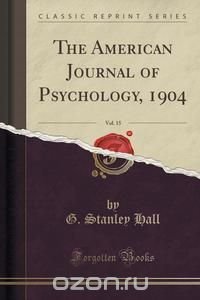Excerpt from The American Journal of Psychology, 1904, Vol. 15
The first question to be faced in a study of time-perception is the question of the "specious present;" for without the consciousness of an extended segment, or period, of past time it would be impossible to perceive either duration or succession. This problem of the specious present is not only the most important, - it is also the most perplexing of the many problems of our time consciousness. It is a case in which sense-perception presents as an actuality what Reason must regard as an impossibility. The present of metaphysical or conceptual time is a point, separating past and future; the present of psychological time - the specious present - is a continuous segment extending appreciably into the past. We cannot hope to solve this antinomy by violating Reason; we must not accept the presence of what is no longer present as a reality. Sense must be subordinated to Reason, and the specious present must be regarded as specious, as an illusion which is somehow explicable on the assumption that the real present is a point. The problem may then be stated as follows:
How is it that at any one moment there can appear to be present several moments?
About the Publisher
Forgotten Books publishes hundreds of thousands of rare and classic books. Find more at www.forgottenbooks.com
This book is a reproduction of an important historical work. Forgotten Books uses state-of-the-art technology to digitally reconstruct the work, preserving the original format whilst repairing imperfections present in the aged copy. In rare cases, an imperfection in the original, such as a blemish or missing page, may be replicated in our edition. We do, however, repair the vast majority of imperfections successfully; any imperfections that remain are intentionally left to preserve the state of such historical works. Это и многое другое вы найдете в книге The American Journal of Psychology, 1904, Vol. 15 (Classic Reprint) (G. Stanley Hall)
